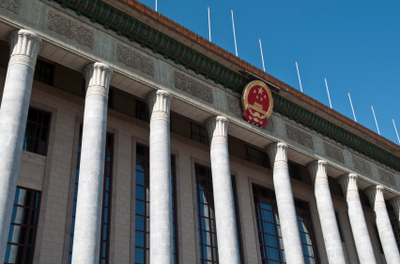
Open comment period helps steer China away from legalizing “residential surveillance.”
Retreating from a more hardline stance on political dissent, China has scrapped plans to legalize detention of political prisoners for up to six months in undisclosed locations. An apparent impetus behind this retreat is an unlikely source—a public consultation process initiated by the government over the Internet.
Historically, the Chinese government has held political dissidents for extended periods of time without informing family members as to their whereabouts. Just last year, Ai Weiwei, a world-famous artist and political activist, was subjected to this kind of detention for several months before being released. Although “residential surveillance” is technically illegal, such imprisonments are not uncommon.
Last August, in a long-awaited revision of China’s criminal procedure law, the National People’s Congress proposed officially sanctioning the secret holding of suspects in politically-sensitive cases, such as terrorism and state subversion. This provision was one component of what was an otherwise well-received proposal that enhanced family notification and other protections for suspects in ordinary criminal cases.
The government announced its proposed criminal procedure revisions via the Internet, an increasingly common platform for the Chinese government to disseminate information about law, policy, and regulation. The government also provided interested parties with a one-month period during which comments on the proposal could be submitted.
This online notification and request for comments was notable in that such policymaking procedures are typically reserved for less politically-sensitive matters. Recent examples in this vein include education, health care, and income tax reform. Such issues certainly pose a governance challenge for the Chinese Communist Party but do not, like the highly controversial criminal procedure law, pose an imminent threat to the Party’s underlying legitimacy.
Consistent with this distinction between issues of governance and political legitimacy, the government chose not to make public the approximately 80,000 comments that were submitted in response to the criminal procedure law proposal. This reticence stands in stark contrast to the government’s actions in other areas, such as health care reform, where comments have been made publicly available following their submission.
Faced with such limitations in disclosure, some participants turned to microblogs and other online sources as means of disseminating information about their comments on the criminal procedure revisions. According to Chen Weidong, a law professor at Renmin University in Beijing, many of the comments “concerned the limits on citizens’ rights” when it comes to secret detentions.
Although the policymaking process since the announcement of the proposed criminal procedure law has been rather opaque, the final outcome is now apparent. The National Peoples’ Congress is all but certain to ratify revisions to the criminal procedure law that do not include provisions that would legalize undisclosed detention. Public consultation appears to have played, by all accounts, an unusually central role in shaping the content of this politically-sensitive law.




